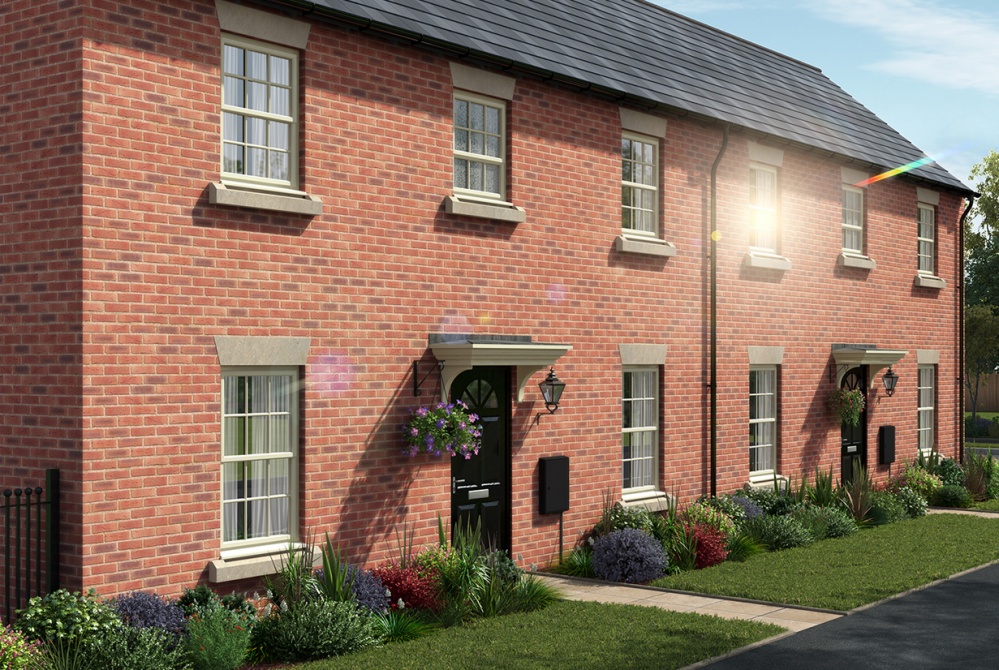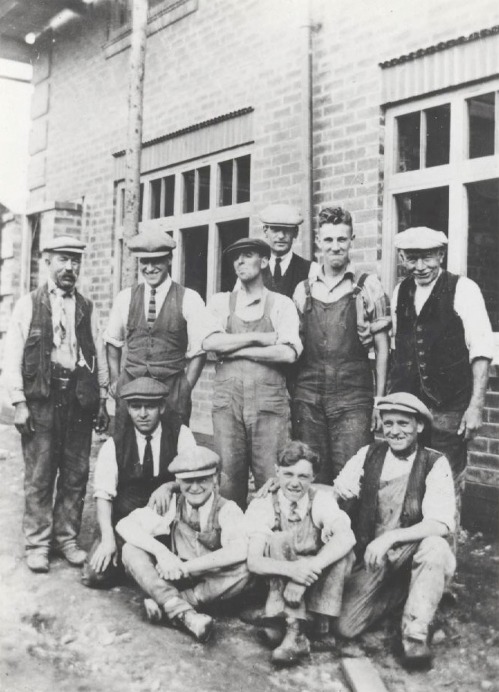In The Family - Strata Homes

The Weaver family have been in business since 1919, and their company is now a major regional house builder. Oh – and they also find time to run a football club
Strata Homes is a huge regional house builder operating across Yorkshire and the East Midlands. Calling it house building might be underselling what Strata do – not only do they build houses, they also buy the land, do the design, marketing and even take care of the legal transfers when houses are sold. ‘Our niche is first- and second-time buyers,’ says Irving Weaver, Oscar’s grandson and current Chairman of Strata Homes (Irving’s son Andrew is now Managing Director). ‘We have great emphasis on design – both street scene and interior,’ says Irving. The average selling price for a Strata home is around £155,000.
The business was a large part of Irving’s life growing up. His father Jack’s house was on the front of the builder’s yard, ‘I was always playing about and jumping into lorries,’ Irving laughs. Being the boss’s son didn’t get him an easy ride to the top of the business though. He walked out of school with 11 O Levels, no A Levels and nowhere to go. ‘My father was furious,’ he recalls. Irving started working on site and attending Sheffield Polytechnic, where he got a national certificate in building. He then did surveying and gradually worked his way through the business until 1977, when his father retired and he became Managing Director at the age of 28.
Last year, Strata built 521 homes. ‘That’s round about our target,’ states Irving, who is now 65. The company’s turnover was around £80 million, with profits of £9 million. Strata may have hit their target last year, but during the recession Irving says they were building less than 300 homes a year. It was a difficult time, and Strata’s turnover fell to around £40 million, but with an eye to the market they kept buying land and preparing to get going straight away once the recovery came. Irving credits government schemes like Help to Buy with helping to stimulate the market. ‘We took full advantage of that and reinvigorated the business straight away in early 2012,’ he recalls.
Strata has seen a lot of change since Oscar Weaver’s day. Up until the early 1970s it was primarily a contracting business, working mostly with the public sector, and it was Irving who moved the company into house building. ‘When bottom price wins, contracting is very difficult,’ he explains. ‘Although house building is more cash consumptive by a long way, the margins are better.’
Irving explains that the business is 100 percent family owned. However, within that they have used a different class of share to give incentive and a sense of ownership to management and directors. ‘I think that’s key to us actually,’ he says. These shares have always reverted back to the business. Irving owns 80 percent of Strata, and the other 20 is owned by Andrew: ‘He is in the business and working hard and helping to develop it,’ Irving explains. What Irving won’t do, he says, is give shares to family members who are not involved with the business. ‘All that does is create tension,’ he explains, ‘My other two children have got other situations and it’s up to me to try and help them personally, not through the company.’

One of the more public ways Irving has supported his youngest son Simon was to buy Harrogate Town Football Club. Simon was a professional footballer and at 31 he got a job managing Harrogate, who play in the Conference North. Two years later the owner decided he had had enough, and Irving, having seen how hard Simon had worked at the club, couldn’t bear to see it fail. ‘I was in the wrong place at the wrong time,’ he laughs. ‘It’s a very odd circumstance where you get a father and son in football, and it’s difficult because people say “He’s unsackable”,’ Irving muses, ‘Actually we’re both sackable if we fail. But we intend to succeed.’
Irving has big plans for the future of Strata – and the numbers to back them up. The net worth of the company is currently £40 million, and he and Andrew plan to more than double that in the next seven years. With Help to Buy and other government incentive schemes, he feels this is more than possible. Irving tells me it is generally agreed that 240,000 new homes are needed each year. Only 118,000 were built last year, and he doesn’t think the industry has the capacity to get above 150,000. ‘In simple economics, the supply and demand equation is well out of kilt,’ he concludes, ‘So I think we’ve got a real opportunity to grow.’







